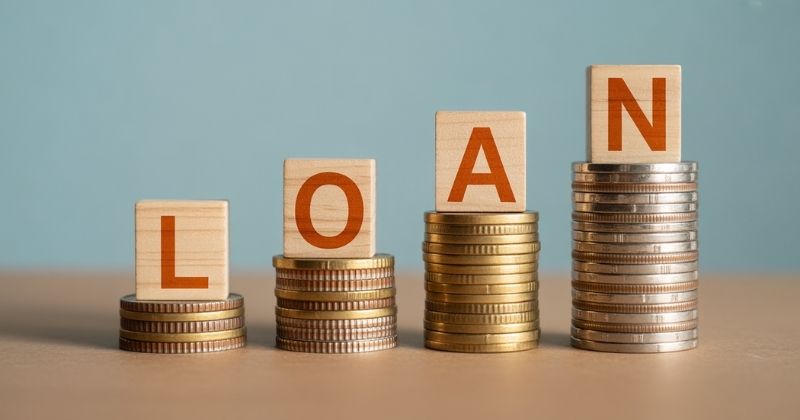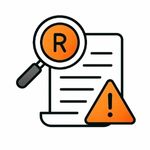
South Africa is facing a sharp rise in personal loan defaults, with more households struggling to keep up with repayments in the face of high living costs, rising interest rates, and widespread unemployment. For many borrowers, loans that once seemed affordable have become unmanageable, leading to missed instalments and growing arrears. Defaulting not only affects individuals but also places additional strain on families and communities, while damaging credit scores and limiting future borrowing options.
Key Takeaways
- Rising Defaults In South Africa: Nearly one in three personal loan accounts fell into serious delinquency by mid-2024, with many small loans being used for survival needs rather than long-term investments.
- Consequences Of Defaulting: Missed repayments can lead to legal action, higher interest charges, damage to credit records, and even suspension of services such as insurance or medical aid cover.
- Paths To Recovery: Borrowers in default can take action through negotiation with lenders, debt consolidation loans, applying for formal debt review, or working with NCR-registered debt counsellors to regain financial stability.
What Does It Mean To Default?
Defaulting takes place when an individual does not honour a scheduled payment, or when a debit order that has been arranged to cover that payment is reversed. This applies to obligations that are set out in a contract or credit agreement.
In practical terms, defaulting refers to a consumer failing to settle the required instalment or full payment on the date that was originally agreed upon in the contract. This failure to meet the terms of the agreement is what places the consumer in default.
Although the National Credit Act 34 of 2005 does not provide a direct and formal definition of the term defaulting, the legislation does allow credit providers to impose certain administrative charges when a borrower does not adhere to the repayment conditions. These provisions give lenders a legal framework to address missed payments.
A straightforward way for a consumer to recognise that they are in default is by reviewing their account statement. If the statement reflects arrears or overdue amounts, it serves as confirmation that the consumer is in default.
Personal Loan Defaults Hit Record Highs
| Metric | Statistic / Finding | Notes |
|---|---|---|
| Non-bank personal loan delinquency (3+ months in arrears) | ~41.3 % | Non-bank loan defaults are significantly higher than those of traditional banks. |
| Bank personal loan serious delinquency | ~26.3 % | Reflects growing strain on borrowers even within regulated banking institutions. |
| Delinquency rate difference: non-bank vs bank | ~+15 percentage points | Non-bank personal loan delinquencies exceed bank ones by this margin. |
| Delinquency trends / pressure | Highest levels since Q2 2021 | Indicates mounting repayment difficulties among consumers. |
| Household debt / personal debt levels | Over R 2.5 trillion; household debt-to-income ~65 % | Suggests high leverage and widespread financial vulnerability. |
| Consumer ability to pay bills / loans | 38 % unable to pay at least one bill or loan in full | Up from 35 % in late 2024, showing increased household pressure. |
About Arcadia Finance
Secure your loan quickly and confidently with Arcadia Finance. Compare offers from 19 trusted lenders, pay no application fees, and enjoy an NCR-compliant process tailored to your needs.
Why South Africans Default

Economic Pressures
Daily financial realities in South Africa heavily influence why borrowers fall behind on repayments, cutting across income groups, regions, and credit types. The country faces one of the highest unemployment rates globally, with the labour market especially fragile for young people and rural communities. Persistent unemployment drives reliance on credit, as many people borrow to cover basic needs when steady income is absent. Rising living costs in food, transport, electricity, and housing have added pressure, while wages have failed to keep pace with inflation. Between 2022 and 2024, inflation surged in several quarters due to both domestic conditions and global price increases.

Interest Rates And Borrowing Costs
The South African Reserve Bank’s rate increases to control inflation have further strained borrowers. Those holding loans with variable interest or managing multiple forms of credit face sudden changes in repayment amounts. Even a modest rise in rates can make a once-manageable loan unaffordable. Most lower- and middle-income households have limited savings, meaning that an unexpected event such as illness, retrenchment, or a family emergency often leads to missed instalments.

Cultural Responsibilities And Black Tax
A distinct factor shaping defaults in South Africa is the practice known as black tax. This refers to the financial contributions many Black South Africans make to support their extended families, including parents, siblings, and relatives beyond the immediate household. While rooted in community responsibility, it adds pressure to already tight budgets. Money that could be directed toward loan repayments is instead used for school fees, groceries, medical expenses, or funeral costs. Traditional credit assessments often fail to account for these obligations, leaving borrowers under more strain than lending models assume.

Defaults And Borrowing Patterns
By the middle of 2024, credit bureau data revealed that nearly one in three personal loan accounts had entered serious delinquency. Many of these loans were relatively small, often below R5,000, and were disproportionately taken out by first-time and low-income borrowers. Instead of being used for longer-term goals such as property upgrades or business investment, they were directed toward immediate survival needs. Borrowers relied on them to buy food, fill gaps between salaries, or address minor emergencies. This pattern highlights a structural issue: credit is increasingly serving as a substitute for income, and once that borrowed income is depleted, default becomes difficult to avoid.

Why Defaulting Is Serious
Providers Can Take Legal Action
When a borrower fails to honour a credit agreement, the provider has the right to initiate enforcement measures. Credit providers generally prefer to resolve such issues through discussion or settlement, but the law allows them to take formal action if required. This process often involves legal costs and administrative expenses, which can make the matter financially burdensome for both the lender and the consumer.
You Will Pay More Interest
Missing payments means the outstanding balance is not reduced as expected. This leads to further interest being charged on the remaining amount, which steadily increases the overall debt. In many cases, the repayment term will also be extended, which pushes up the total cost of the credit agreement.
It Goes On Your Credit Report
When an account is in default, the event is reported to credit bureaus. The record of the default remains visible for at least twelve months, or until the account is fully updated. Having this information on a credit profile lowers the credit score and can lead to more expensive borrowing in future. It may also make it difficult to qualify for new credit agreements at all.
Your Cover May Be Suspended
Where agreements involve services such as insurance or medical aid, a missed payment could lead to the suspension of cover. Providers have the right to pause the benefits until outstanding payments are settled, leaving the consumer without protection during the period of non-payment.
How Lenders Are Responding
| Section | Details |
|---|---|
| Reducing Defaults Through Local Strategies | To reduce missed payments, many South African lenders are adapting their methods to fit local economic and cultural contexts. Traditional banks use behavioural nudges such as SMS reminders, mobile alerts, and gamified apps that reward consistent repayments. These apps often feature progress bars, goal-setting tools, and badges to keep borrowers motivated. Some also provide short tips or videos on budgeting, credit management, and responsible borrowing. |
| Community-Inspired Approaches | Some fintech companies are adopting community-style repayment features, modelled on stokvels. Borrowers join repayment groups where payment activity is visible to others, creating peer accountability. The idea is that people are more disciplined when observed. These tools aim to capture the trust of stokvels but present it in a mobile format appealing to younger users. |
| Shifting Risk Assessment Methods | Lenders are also changing how they assess risk. Banks and regulated providers increasingly use alternative data such as mobile usage, airtime purchases, and spending patterns to evaluate financial behaviour. High-risk borrowers are given smaller initial limits, which can increase with consistent repayment. Reliable payers may receive loyalty rewards or lower interest rates, reinforcing good habits. |
| Approach Of Non-Bank Lenders | Non-bank lenders, particularly those serving low-income customers, have a higher risk tolerance. They focus on quick access for urgent needs like school fees, rent, or groceries, often offering small, high-interest loans with fewer checks. While this meets immediate needs, it frequently results in repeat borrowing and higher default rates. |
| Overall Trends In Lending Strategies | The range of approaches reflects the diversity of South Africa’s credit market. Some lenders are moving toward hybrid models that combine formal finance with informal practices, while others remain strictly transactional. Those who consider social and cultural contexts are better positioned to lower defaults and build sustainable lending practices. |

Options Available To Borrowers In Default
Being in default can feel overwhelming, but there are several practical steps borrowers in South Africa can take to regain control of their finances. The key is to act quickly rather than ignoring the problem, as delays usually make the situation worse.
Engage Directly With Lenders
The first step is to communicate with the credit provider. Many lenders are open to renegotiating repayment terms if they know the borrower is facing genuine financial difficulty. Options may include extending the repayment period, reducing the monthly instalment, or granting a temporary payment holiday. Open dialogue can prevent the account from being handed over to debt collectors, which adds costs and stress.
Consider Debt Restructuring
For borrowers juggling multiple loans, debt consolidation can be an effective option. This involves combining several debts into a single loan with one repayment schedule. It simplifies management and may reduce monthly instalments. At Arcadia Finance, we connect consumers with trusted lenders who offer debt consolidation loans, helping them manage repayments more effectively.
Apply For Debt Review
The National Credit Act (NCA) gives consumers the right to apply for debt review through a registered debt counsellor. Under this process, the counsellor assesses affordability, negotiates lower repayments with all creditors, and provides legal protection from further enforcement action as long as the new plan is followed. This formal path can be a lifeline for over-indebted households.
Work With Registered Debt Counsellors
Borrowers who feel unable to handle negotiations on their own can seek assistance from NCR-registered debt counsellors. These professionals provide structured guidance, ensure rights are protected, and help set up realistic repayment plans. Choosing a registered counsellor is crucial, as unregistered advisers or loan sharks often exploit vulnerable consumers.
Seek Support Early
Acting quickly improves the chances of finding a workable solution. Borrowers who seek help before the debt spirals further are more likely to protect their credit profiles and avoid legal action. Whether through direct negotiation, consolidation, or formal debt review, taking proactive steps can prevent a temporary setback from becoming a long-term financial crisis.
Conclusion
Personal loan defaults are rising sharply in South Africa, reflecting the pressures of unemployment, high living costs, and rising interest rates. Defaults carry serious consequences, from legal action and damaged credit scores to long-term financial strain. However, borrowers are not without options. By engaging with lenders, considering debt consolidation loans, or entering debt review through the National Credit Act, individuals can regain control of their finances. Acting early and seeking professional guidance increases the chances of avoiding lasting damage and building a more stable financial future.
Frequently Asked Questions
Defaulting occurs when a borrower fails to make a repayment on the date agreed in the contract. This includes missed instalments or reversed debit orders, and it often results in penalties, higher costs, and a negative entry on the credit report.
A record of default usually remains visible for at least twelve months or until the account is fully updated. During this time, it lowers the borrower’s credit score and may limit access to new credit facilities.
Yes. Credit providers are entitled to enforce agreements through legal processes if repayments are not made. This can include court action, garnishee orders, or repossession of assets, which makes it crucial to act before matters escalate.
Borrowers can negotiate with lenders for revised repayment terms, apply for debt consolidation to simplify obligations, or seek debt review through an NCR-registered counsellor. These measures can reduce instalments and provide legal protection.
Preventive steps include budgeting carefully, prioritising essential expenses, setting up debit orders, and maintaining an emergency fund. Borrowers should also avoid taking on multiple loans at once and only borrow what they can realistically afford to repay.




